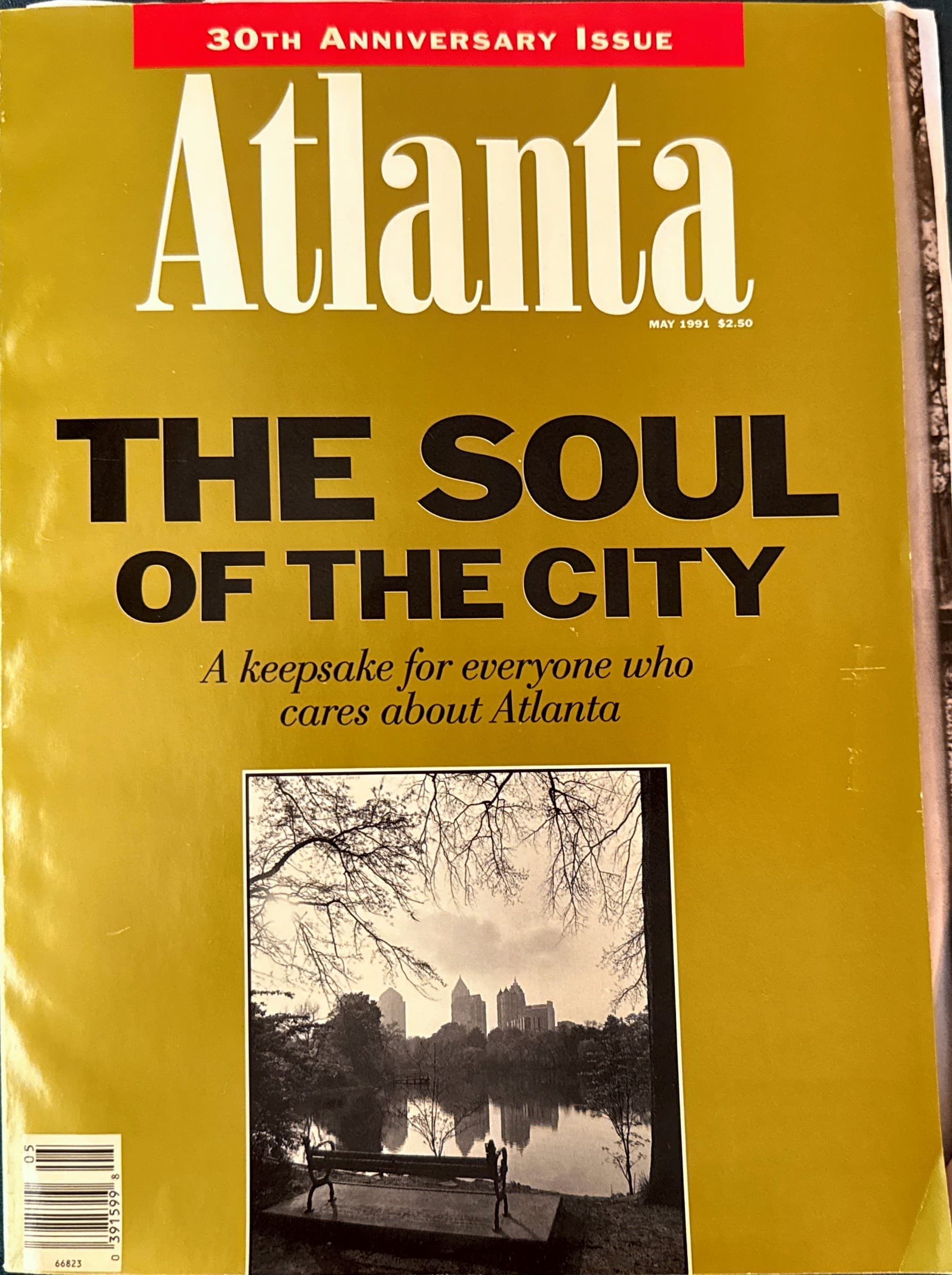Still Magnolias
Originally published in
Atlanta Magazine
May 1991
DAMMIT, SCARLETT, TAKE YOUR 17-INCH WAIST AND GET OUT OF HERE. AND TELL MELANIE she can go with you.
You’d think the city of Atlanta never had a female population outside the pages of Gone With the Wind. Frankly, my dear, I want to talk about real flesh-and-blood Atlanta women—wives and mothers and daughters who had to adjust to ever-changing sets of rules about matters grave and small, play with a deck that was stacked against them, and make do.
Women like Celestine Sibley, the city’s premier newspaper columnist. Early on, she distinguished herself as a reporter covering hardball politics and murder trials—at a time when women were not supposed to write anything but “society notes.” But she had to resign her job when she became pregnant. An example closer to home: my mother used to cut the grass on summer mornings before she went downtown to type her boss’s letters and correct his grammatical errors.
Steel magnolias. Real women. An awe-inspiring mix of toughness, determination, spirit, and grace. They bend but they don’t break. They take care of business. They do the things that need to be done. And they’re full of contradictions. In my own family, the same woman who preached a prefeminist gospel of self-sufficiency never let me forget that men like women who wear perfume and I should always dab a little behind my ears.
Rosalynn Carter was actually the first for whom the “steel magnolia” epithet was widely used. And while it may not have been intended as a compliment, it was. Even her sharpest critics never questioned her independence, her toughness, or her loyalty to her husband—and those are all pretty essential components of steel magnolia-hood. So is pragmatism.
When she chose to wear an old gown to the presidential inaugural ball, that wasn’t an act of defiance. The dress was appropriate. It fit. It was right for the occasion. And—as the magnolia in my family was fond of saying, “It still had a lot of wear left in it.”
Steel magnolias of my mother’s generation tended to put their trust in rules: Never wear white shoes before Easter. Be careful in public restrooms. Defer to your elders.
When the rules let them down, they took the consequences and kept on going. Celestine Sibley had her baby, then went back to work at two jobs to make ends meet. My mother moved halfway across the country to start over when she found herself a widow with a small child.
But it isn’t all grim. Steel magnolias appreciate the niceties—the good china, the candy dish that belonged to Cousin Frances. They are concerned about appearances. Quick, straighten up the living room—company’s coming.
And they have a soft spot in their hearts for their men, perhaps because they leave the romanticism to them. In the South, it is far more likely to be the men who are the romantics and the women who are the realists. Magnolias love their husbands, lovers, sons, brothers, and fathers unconditionally. As wives and mothers, they are indulgent, loyal, and supportive. And if their men let them down, well, they are prepared to take the consequences.
But that’s just the steel; What about the magnolia part? Why did this particular flower take root in the South? And why, after a quarter century of mainstream feminism, does the magnolia remain a reality in Atlanta?
The answer is that most Southern women are still pretty close to their rural roots. City-bred women of my generation are likely to be daughters or granddaughters of women who grew up on farms or in small towns where self-reliance was a way of life. They came of age in times and places where the line between poor and not-poor was often pretty fine. They would have known, firsthand, the effects of the Depression and World War II—both of which hit their region hard.
From all this, they retained and passed along a waste-not, want-not code of behavior and a wariness that persisted through more prosperous times. Sure, they came to enjoy being able to buy a new refrigerator before the old one was completely worn out. But they were always a bit suspicious of good times. At any given moment, they were prepared to cut back, to make do, to start over. And do it with grace.
Fiddle-dee-dee, indeed.

Click to view the original scans.
Back to Top